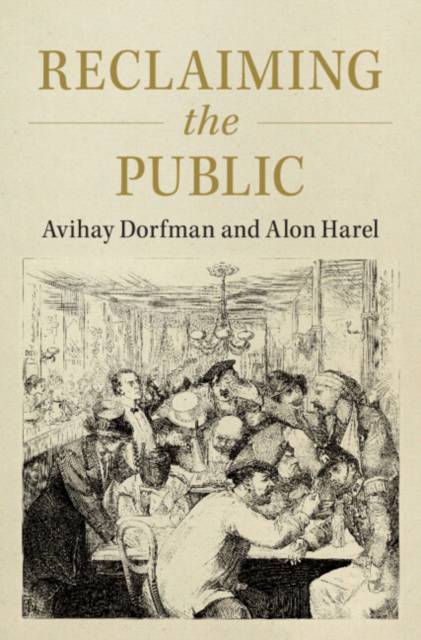
Bedankt voor het vertrouwen het afgelopen jaar! Om jou te bedanken bieden we GRATIS verzending (in België) aan op alles gedurende de hele maand januari.
- Afhalen na 1 uur in een winkel met voorraad
- In januari gratis thuislevering in België
- Ruim aanbod met 7 miljoen producten
Bedankt voor het vertrouwen het afgelopen jaar! Om jou te bedanken bieden we GRATIS verzending (in België) aan op alles gedurende de hele maand januari.
- Afhalen na 1 uur in een winkel met voorraad
- In januari gratis thuislevering in België
- Ruim aanbod met 7 miljoen producten
Zoeken
Omschrijving
Reclaiming the Public defines and defends the intrinsic value of "the public" that resides in our public institutions and the officials that run them. The book argues that public institutions do not simply act for us but instead speak and act in our name; i.e., they represent us. Representation requires that decisions made by public institutions or officials are consistent with the perspectives of citizens. If the decisions satisfy this requirement, these decisions are attributable to citizens, and citizens can be held responsible for them. This theory of political authority accounts for major features of our legal system, such as the non-instrumental grounds for the separation of law-making powers, the non-instrumental value of constitutions, the limits of privatization, the nature and value of public property, and the impermissibility of using artificial intelligence in setting certain policies and making certain decisions.
Specificaties
Betrokkenen
- Auteur(s):
- Uitgeverij:
Inhoud
- Aantal bladzijden:
- 208
- Taal:
- Engels
Eigenschappen
- Productcode (EAN):
- 9781009327176
- Verschijningsdatum:
- 29/02/2024
- Uitvoering:
- Paperback
- Formaat:
- Trade paperback (VS)
- Afmetingen:
- 152 mm x 229 mm
- Gewicht:
- 285 g

Alleen bij Standaard Boekhandel
+ 81 punten op je klantenkaart van Standaard Boekhandel
Beoordelingen
We publiceren alleen reviews die voldoen aan de voorwaarden voor reviews. Bekijk onze voorwaarden voor reviews.









